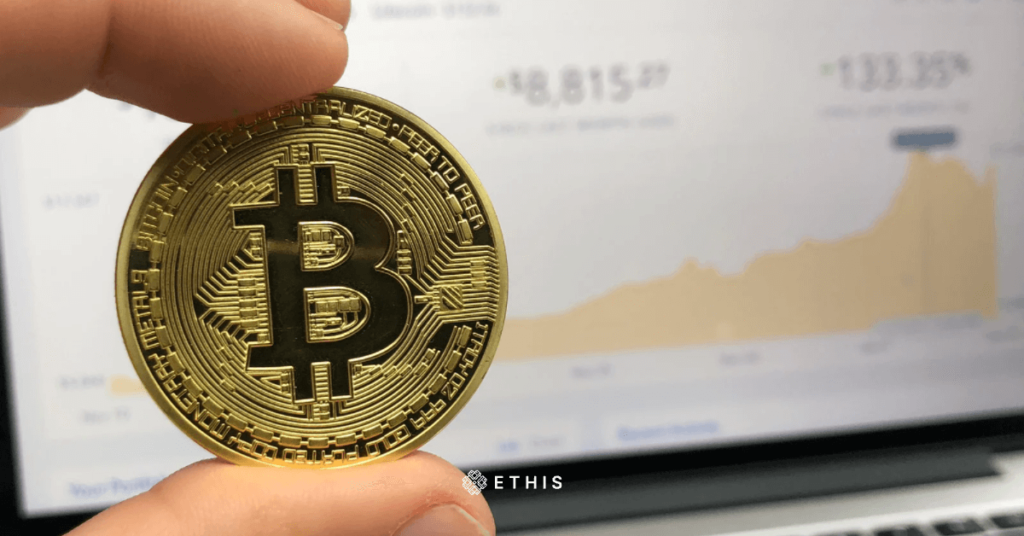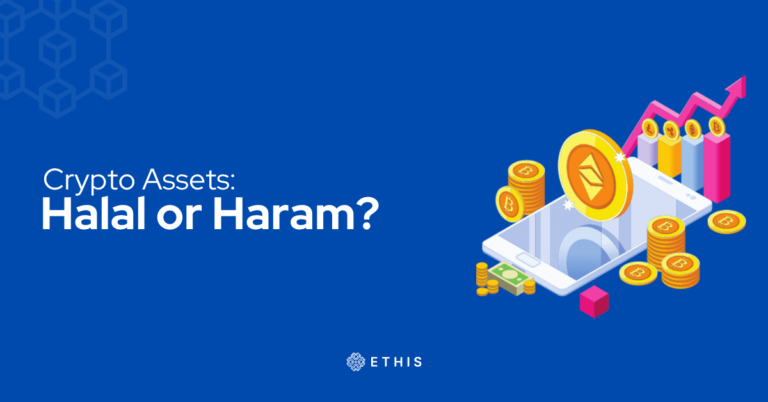
Dr. Farrukh Habib, Chairman, Shariah Governance Board (SGB), MRHB Defi
If you are reading this article, you would be looking for an answer to the question whether cryptos are halal or haram? You might not have found a definite answer. Further adding confusion, many fatwas are giving mixed shariah opinions. Unfortunately, many fatwas available related to cryptos are based on superficial and incomplete information, leading to further complications.
Though I confess that the answer to the question is not simple, if one approaches this matter objectively and analyse this phenomenon with a deeper understanding, it may help understand the shariah compliance of cryptos.
However, before delving into a deeper discussion, it is important to highlight a few points here:
- All cryptos are neither halal nor haram. To me, a general question like cryptos are they halal or haram is an incorrect question! To have the right answer, one must ask the right question. Every crypto project or token warrants a separate shariah analysis because they are not the same. They differ in their objectives, features, technology, underlying projects/assets/utilities, issuance, usage, distribution, burning mechanisms, etc.
- Not all crypto assets are “currencies” or “money.” Many Shariah scholars are misled by the term “cryptocurrency.” Since majority cryptos do not fall under the economic and shariah definition of money or currency, they are called “currencies.”
- The logical conclusion is that they are a form of deception and fraud, hence haram in shariah. Moreover, shariah has strict guidelines for a currency in terms of its issuance and exchange. If cryptos do not fit in the shariah framework of currency or those guidelines are not properly followed, it is difficult for the scholars to declare them shariah compliant.
- Though many crypto assets are hybrid, showing specific features – like utility, rights, commodity-backing, etc. — and money – as a payment system in a loose manner, it is important to decide whether a crypto asset is predominantly money or something else.
- Cryptos can be seen as a general asset class or a form of the digital asset instead of being narrowly considered as currencies. Some of them are money because they are primarily used as a payment system, but not all are like that. Therefore, it is better to call them crypto / digital assets.
If cryptos are appropriately defined and categorised, it is much easier to understand or develop a framework for shariah compliance. One of the Islamic legal maxims support this approach as it states:
“The [Shariah] ruling of a thing is based on its [actual] knowledge [and understanding].”
So, let’s get started.
What are crypto assets?


Crypto assets (also referred to as “digital assets”’ or “virtual assets”) are cryptographically secured digital representations of value on a blockchain platform. You may call them cryptos in short. People can own cryptos, store for future use, distinguish one from another and transfer to others. The other party can take their possession after an exchange. So, in that sense, cryptos have all the basic features of an asset.


Some fatwas argue that they are hypothetical or non-existent due to their digital nature. However, this argument is flawed because shariah indeed recognises intangible assets. Rights, usufruct, and services also do not have a physical presence, yet they can be the subject matter of a transaction.
Many Sukuk in the traditional Islamic finance industry use mobile talk time – a digital asset – as a valid underlying subject matter. Therefore, it is incorrect to assume that a digital asset is simply non-existent or imaginary.
Taxonomy of crypto assets


Though cryptos show general qualities of an asset, whether they are halal or haram is a different discussion. For this discussion, the main shariah concern is the source of value that these crypto-assets represent. To understand this, we will discuss their categorisation.



Cryptocurrencies. The first type of these crypto-assets is “cryptocurrencies” or “payment tokens.” They are also termed digital or virtual currencies. They are specifically designed to be used as a medium of exchange. In other words, they facilitate a peer-to-peer payment system. The most famous one is Bitcoin in this category. Stable coins – reserve-backed or algorithm-based – and gold or silver-backed tokens also fall under this category.


Examining cryptos’ issuance process and underlying backing is important to consider them Shariah-compliant. Moreover, they should be treated as currencies from the Shariah perspective.
1) Utility tokens
Utility tokens offer access to benefits, discounts, or services on a blockchain platform. Shariah principles and rulings regarding utility, benefits, or future services are relevant to such tokens. Those principles and rulings should be adhered to for shariah-compliant utility tokens.
2) Security tokens


Security tokens entitle particular ownership interests to their holders in an underlying business or an asset. Security token holders expect future profits from their investment in such tokens. From the shariah perspective, they can be divided into three main categories:
- Asset-backed tokens: These tokens are backed by an asset other than gold, silver, and fiat currencies. Commodity-backed tokens and real estate-backed tokens fall under this category. From the shariah perspective, such tokens are acceptable if their underlying assets, issuance, and contracts are halal.
- Equity tokens: Represent an ownership interest in a company. They are like stock and shares in nature. From a shariah perspective, they would follow the criteria of a shariah-compliant stock or share.
- Investment tokens: Represent interest-based loans. They are like crypto bonds. Like conventional bonds, and are not acceptable in shariah. However, suppose such tokens are backed by shariah-compliant securities, like Islamic units of funds, sukuk, etc. In that case, they can be shariah-compliant if the token itself is also designed in a shariah-compliant manner.
3) Governance token
These tokens give their holder the rights to manage and vote on the governance of its respective blockchain platform or project. They can only be considered shariah-compliant depending on whether the underlying project or platform is shariah-compliant or not. And there are no prohibited elements or features attached to the governance token.
4) Non-fungible tokens


Non-Fungible Tokens (NFTs) are a new form of crypto assets that are gaining traction lately. These tokens are unique and cannot be substituted, subdivided, or interchanged. Due to these features, NFTs can represent real-world objects, like art, music, videos, virtual world items, certain rights, certificates, and even real estate property. NFTs can only be considered shariah-compliant like other crypto assets if their underlying object, project, and features are free from prohibited elements.
5) Hybrid assets
Most crypto assets are hybrid assets because they are designed and developed for multi-purposes and have various features. There is no restriction on what form and features a crypto asset can have. Therefore, a utility token, for example, can also be used as a payment token and vice versa. Ethereum (ETH) is a good example of a hybrid asset.
It gets tricky to develop a shariah compliance framework for such assets. It certainly requires an in-depth knowledge of shariah and crypto domains to get it done correctly. The most dominant feature of hybrids should be considered in their shariah compliance; however, deciding a dominant feature and ensuring that other features are completely negligible is a tough call.
Conclusion:
It is still work-in-progress due to the ever-changing nature of the crypto space, but this taxonomy can assist in developing a general shariah compliance framework. It is summarised in the diagram below.


I hope this article helps understand the general idea of shariah compliance of crypto-assets through their appropriate categorisation.
However, other detailed aspects also should be considered in issuing a shariah ruling for any specific crypto. Since it is a completely new area and continuously evolving, every category requires deep shariah research and separate analysis.





Top Posts
Islamic P2P Crowdfunding Explained
Halal Money Matters: How Muslims Can Balance Deen and Dunya with Smart Islamic Finance
Halal Investments for Singapore Muslims? It’s time for a shake-up in the Islamic Investments scene.
Smart investment for making Halal money
3 Reasons Why Property Crowdfunding is the Smart Investment for You